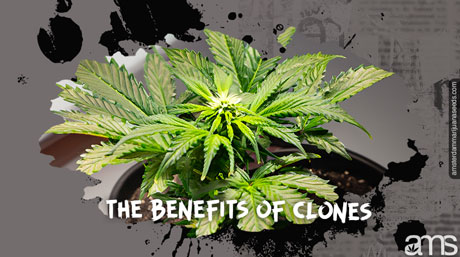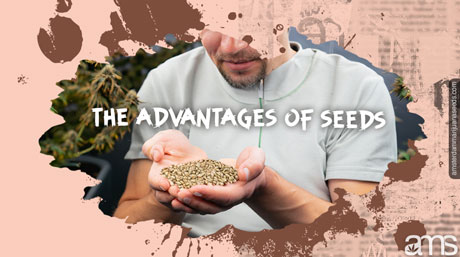Clones vs Seeds Which Is Better for Cannabis Cultivation? Pros, Cons, and Considerations
When it comes to cannabis cultivation, growers often face a critical decision: whether to use clones or seeds. Each method has its advantages and considerations, and understanding the differences can help you make an informed choice for your cannabis garden. In this article, we will explore the pros and cons of both clones and seeds, allowing you to determine which option suits your needs best.
The Benefits of Clones
Cloning involves taking cuttings from a mature cannabis plant and propagating them to develop genetically identical offspring. Here are some of the key advantages associated with using clones for cannabis cultivation:
- Genetic Consistency: Clones offer an exact replica of the parent plant, ensuring consistent traits such as potency, flavor, and yield. This consistency can be beneficial for growers aiming to replicate desirable qualities.
- Faster Growth: Clones skip the germination stage, allowing for faster growth and development. They already possess an established root system, which means they can focus their energy on vegetative growth and ultimately flowering.
- Phenotype Preservation: Clones preserve the phenotype of the parent plant, which refers to its observable characteristics like leaf structure, growth pattern, and resin production. This feature is especially important for growers who have found a specific phenotype they want to maintain.
- Elimination of Males: Cloning guarantees female plants, eliminating the risk of male plants in your garden. Male plants do not produce buds and can pollinate female plants, leading to reduced quality and yield.

Despite these advantages, there are some considerations to keep in mind when opting for clones:
- Vulnerability to Pests and Diseases: Clones can inherit any pests or diseases present in the parent plant. It’s crucial to ensure the health of the mother plant and take preventive measures to avoid any potential issues.
- Limited Genetic Diversity: Cloning restricts genetic diversity, as all clones are essentially copies of the same plant. This lack of diversity can make the crop more susceptible to diseases and pests over time.
- Availability and Legality: Depending on your location, obtaining clones may be more challenging due to legal restrictions or limited availability. It’s essential to research local regulations and availability before deciding on clones.
The Advantages of Seeds
Using seeds for cannabis cultivation offers its own set of advantages. Let’s explore why some growers prefer this method
- Genetic Variety: Seeds provide an opportunity to explore a wide range of genetic diversity. Breeders develop various strains with unique characteristics, allowing growers to select the ideal plant traits for their specific needs and preferences.
- Taproot Development: Seed-grown plants develop taproots, which provide stability and enhanced nutrient uptake. This robust root system can result in stronger, more resilient plants.
- Lower Risk of Pests and Diseases: Starting from seeds reduces the risk of inheriting pests or diseases from the parent plant. By carefully sourcing high-quality seeds, you can start with a clean slate and minimize potential issues.
- Availability: Seeds are generally more readily available than clones, as they can be purchased from reputable seed banks or obtained through various legal channels. This accessibility makes seeds a convenient choice for many growers.

While seeds offer several advantages, there are also some considerations to bear in mind:
- Germination Process: Seeds require germination, which involves providing the right conditions for them to sprout. This process can take a few days to a week, delaying the growth timeline compared to clones.
- Gender Variation: When growing from seeds, both male and female plants can emerge. Unless you’re specifically breeding, it’s crucial to identify and remove male plants to prevent pollination and ensure high-quality flower production.
- Phenotype Variation: Seeds can exhibit phenotypic variation, meaning that the offspring may display different characteristics from the parent plant. While this can be exciting for breeders, it may present challenges for growers seeking consistency.
Conclusion
In the debate between clones and seeds for cannabis cultivation, there is no definitive answer. Both methods offer unique advantages and considerations. Clones provide genetic consistency, faster growth, and phenotype preservation, but they are vulnerable to pests and diseases and limit genetic diversity. On the other hand, seeds offer genetic variety, taproot development, and lower risk of pests and diseases, but they require a germination process and can exhibit phenotype and gender variation.
Ultimately, the choice between clones and seeds depends on your specific goals, resources, and preferences as a grower. Whether you opt for clones or seeds, remember to prioritize the health and quality of your plants through proper care, maintenance, and suitable cultivation practices. Happy growing!
Frequently Asked Questions
What are the pros and cons of clones in cannabis cultivation?
Clones offer genetic consistency, faster growth, and phenotype preservation. However, they are vulnerable to pests and diseases and limit genetic diversity.
What are the advantages of using seeds in cannabis cultivation?
Seeds provide genetic variety, taproot development, and lower risk of pests and diseases. They are also generally more readily available than clones.
Why is phenotype preservation important in cannabis plants?
Phenotype preservation ensures that the observable characteristics of the parent plant, such as leaf structure and resin production, are maintained in the offspring. This is particularly valuable for growers who want to maintain specific plant traits.



